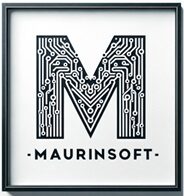Comunicação Linux USB e Bluetooth
12 de agosto de 2021Muitas vezes temos a necessidade de realizar comunicação direta com dispositivos USB e/ou Bluetooth.
A Lib hidapi, permite realizar a comunicação através destes dispositivos, em sistemas windows, linux e mac.
Estarei apresentando brevemente esta api, e detalhando um pouco de sua instalação.
GIT da api
https://github.com/signal11/hidapi
Documentação do fabricante
O Projeto do GIT pode ser visto em:
https://github.com/libusb/hidapi
o processo de instalação pode ser visto em:
https://github.com/libusb/hidapi#installing-hidapi
Instalação no Linux
A instalação para execução necessita apenas da lib.
apt install libhidapi
Porem se voce quer desenvolver, precisará instalar o pacote de desenvolvimento:
apt install libhidapi-dev
Pacotes acessórios
apt install libhidapi-libusb libhidapi-hidraw
O hidraw é usado para integração com o kernel do linux e suporta o desenvimento de usb e bluetooth.
Já o usb é usado diretamente na camada de aplicação. Caso se deseja construir apenas uma das opções, a outra pode ser não utilizada.
Exemplo de código
#ifdef WIN32
#include <windows.h>
#endif
#include <stdio.h>
#include <stdlib.h>
#include "hidapi.h"
#define MAX_STR 255
int main(int argc, char* argv[])
{
int res;
unsigned char buf[65];
wchar_t wstr[MAX_STR];
hid_device *handle;
int i;
// Initialize the hidapi library
res = hid_init();
// Open the device using the VID, PID,
// and optionally the Serial number.
handle = hid_open(0x4d8, 0x3f, NULL);
// Read the Manufacturer String
res = hid_get_manufacturer_string(handle, wstr, MAX_STR);
wprintf(L"Manufacturer String: %s\n", wstr);
// Read the Product String
res = hid_get_product_string(handle, wstr, MAX_STR);
wprintf(L"Product String: %s\n", wstr);
// Read the Serial Number String
res = hid_get_serial_number_string(handle, wstr, MAX_STR);
wprintf(L"Serial Number String: (%d) %s\n", wstr[0], wstr);
// Read Indexed String 1
res = hid_get_indexed_string(handle, 1, wstr, MAX_STR);
wprintf(L"Indexed String 1: %s\n", wstr);
// Toggle LED (cmd 0x80). The first byte is the report number (0x0).
buf[0] = 0x0;
buf[1] = 0x80;
res = hid_write(handle, buf, 65);
// Request state (cmd 0x81). The first byte is the report number (0x0).
buf[0] = 0x0;
buf[1] = 0x81;
res = hid_write(handle, buf, 65);
// Read requested state
res = hid_read(handle, buf, 65);
// Print out the returned buffer.
for (i = 0; i < 4; i++)
printf("buf[%d]: %d\n", i, buf[i]);
// Close the device
hid_close(handle);
// Finalize the hidapi library
res = hid_exit();
return 0;
}No exemplo acima temos alguns fragmentos importantes.
hid_init
Esta função inicializa a biblioteca;
hid_open
A função hid_open, carrega o device, sempre pedindo o VID e o PID do dispositivo USB.
hid_close
A função close, descarrega a função, tendo ser chamada ao fim de sua execução.
